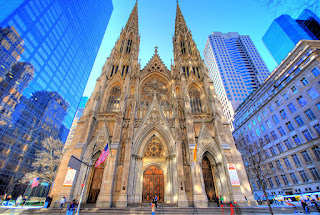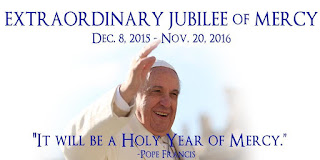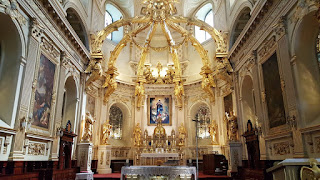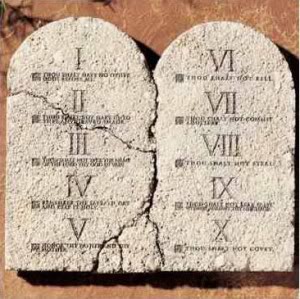Dear Parishioners,
Last month when I celebrated Mass on the memorial of St. Frances Xavier Cabrini (Memorial: November
13), I read how she was responsible for establishing some sixty-seven
Institutions—schools, hospitals and orphanages.
She also founded the Missionary
Sisters of the Sacred Heart. When
Pope Francis canonized St. Junipero Serra (Memorial: July 1) during his recent visit, he mentioned how Fr.
Serra was responsible for the founding of twenty-one missions along the coast
of California. St. Katherine Drexel (Memorial: March 3) established a religious
community (Missionary Sisters of the
Blessed Sacrament) and some forty-nine foundations including Xavier
University in New Orleans. Six separate
religious congregations trace their beginnings to the Sisters of Charity founded by St. Elizabeth Ann Seton (Memorial: January 4).
I could go on with the accomplishments of these and other American saints.
My point in drawing your attention to these formidable
accomplishments is to contrast how we live in very different times, especially
in our part of the country. Catholic Churches
and schools are closing and merging.
Significantly more baptized Catholics don’t attend weekly Mass than
those who actually do. Young people are questioning and abandoning their
Catholic faith all too frequently.
As a pastor, I worry about the future. I am concerned with the spiritual life and
eternal salvation of all the parishioners—whether I encounter them or not each
week. From a practical perspective, I
also try to figure out how to pay the ever-escalating bills and maintain our
facilities by means of a hand to mouth
method each week. How could these past saints
manage to do all that they did while I am having a difficult time with one medium-sized parish? So much was established in the not-too-distant
past (cathedrals and churches, schools, hospitals, orphanages, etc.) with the cooperation
and meager offerings of the poor immigrants who valued their faith and their
Church. It gets frustrating today, more
often than not.
I asked all of you, our parishioners, to help me plan for the
future by participation in the feasibility study whose deadline recently
passed. I hope that you took the time to
participate. I will let you know the
results of the study once I receive them (more than likely, after I figure out
how to pay the bill for the completed study.)
When I was ordained, I envisioned things would be a bit
different than I am experiencing now.
Rectories with multiple priests are getting fewer and far between. I studied philosophy and theology
(concentrating in Sacred Scripture)
and I wind up running a small business.
I make myself available in the confessional each week with perhaps a
half dozen people, at best, seeking the forgiveness and mercy of God regularly. Weddings and funerals are increasingly
occurring with no connection to the Church.
Some people even look at priests with disdain for various reasons.
Surprising to many people, if I had to do it all over
again, I would—without a doubt. I remain interiorly happy and at peace each
day as a priest. I want more people to
share this joy and happiness. I want people
to know and love the Lord Jesus.
What will eventually turn the tide in the other direction? I am sure God knows.
What will eventually turn the tide in the other direction? I am sure God knows.
However, I am currently clueless.
Fr. Ed Namiotka
Pastor































